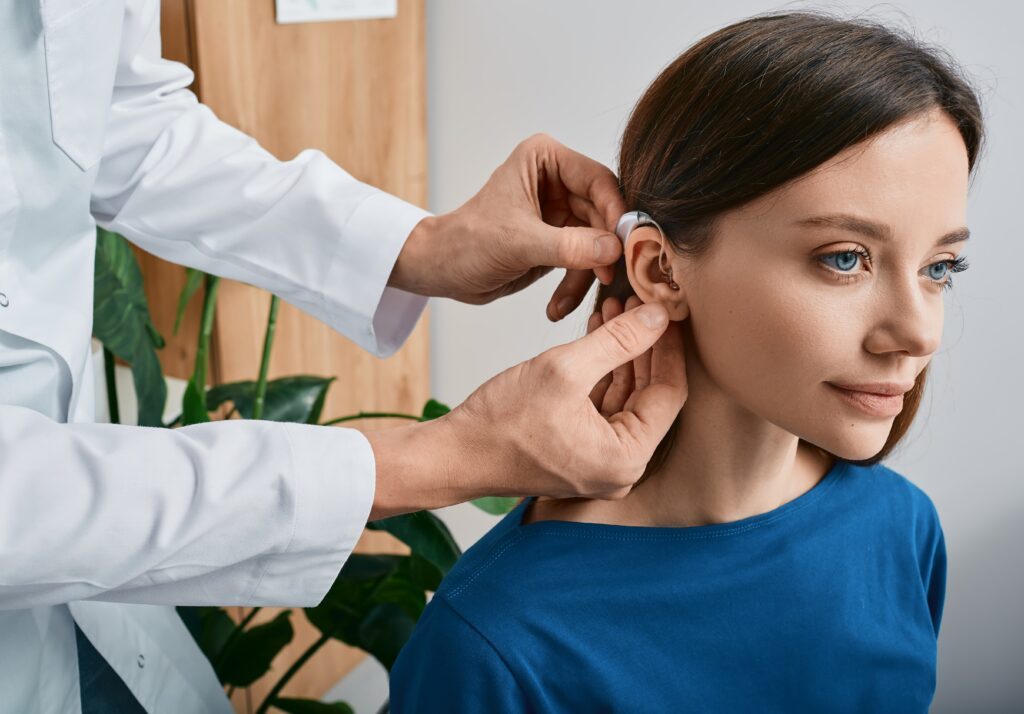Noise-induced hearing loss can affect any person, no matter their age. From our ability to communicate effectively to enjoying everyday sounds, hearing plays a crucial role. A hearing aid might become necessary when hearing loss reaches a certain severity level.
In this blog, we will explore who needs hearing aids, the different levels of hearing loss, and at what point a hearing aid is typically recommended.
Who Needs Hearing Aids?
Hearing aids are not restricted to any one age group or ethnicity. They can benefit people of all ages, from children to the elderly. If you regularly ask people to repeat themselves, have difficulty following discussions in noisy surroundings, or crank up the volume on your gadgets to excessive levels, it may be time to consider getting a hearing aid. Also, people who are constantly exposed to loud noises and dealing with occupational hearing loss.
Seeking expert assistance from an audiologist can assist you in determining whether a hearing aid is the best answer for your particular scenario. Be on the lookout for hearing loss symptoms that can help determine your type of hearing loss.
Levels of Hearing Loss
Hearing loss is categorized as:
- Mild: 25 to 40 dB.
- Moderate: 41 to 55 dB.
- Moderate-severe: 56 to 70 dB.
- Severe: 71 to 90 dB.
- Profound: when greater than 90 dB.

What Level of Hearing Loss Requires a Hearing Aid?
It might be difficult to determine whether you have hearing loss. Most individuals suffer for years before realizing they have a problem. Unfortunately, the longer you wait to seek treatment, the more difficult it is to limit the condition’s growth. If people with hearing loss do not seek treatment immediately, they may develop secondary illnesses such as tinnitus and depression.
People with a mild level of hearing loss can benefit from using hearing aids. However, once you reach the profound hearing loss level, hearing aids may not cause a difference. At this level, it is more about the damage done to the inner ear that doesn’t allow it to go through, no matter how loud the sound is. Hearing aids may not be useful in these circumstances; however, this depends on the patient.
Treating Hearing Loss
Hearing aids are a convenient and cost-effective technique to manage hearing loss. They function by boosting sounds to be clearer and easier to hear. It is important to note, however, that hearing aids may not completely restore your hearing.
Instead, they significantly boost your capacity to communicate and interact with the environment around you. Furthermore, current hearing aids are available in various forms and technology, allowing you to select the solution that best matches your preferences and lifestyle.
Tips for Preventing Hearing Loss
Dealing with hearing loss can be difficult, as it is a widespread condition affecting millions of individuals globally. To safeguard your hearing, consider these recommendations:
- Safeguard your ears from loud noises.
- Manage volume levels.
- Minimize exposure to noisy environments.
- Schedule regular hearing evaluations.
Contact Great Hearing Benefits
People living with hearing loss and ear damage from loud noises can experience significant impacts on their quality of life, not only in a physical way but also psychologically. Using a hearing aid can be helpful when hearing loss interferes with daily activities and communication. Whether you’re experiencing mild or severe hearing loss, seeking advice from hearing healthcare professionals is the first step towards regaining your auditory experiences.
Great Hearing Benefits collaborates with health plans, companies, unions, and other groups to improve people’s hearing health. Hearing aid discounts are available to assist persons with hearing loss and have access to award-winning technology and high-quality treatment. Contact us today to learn more!


